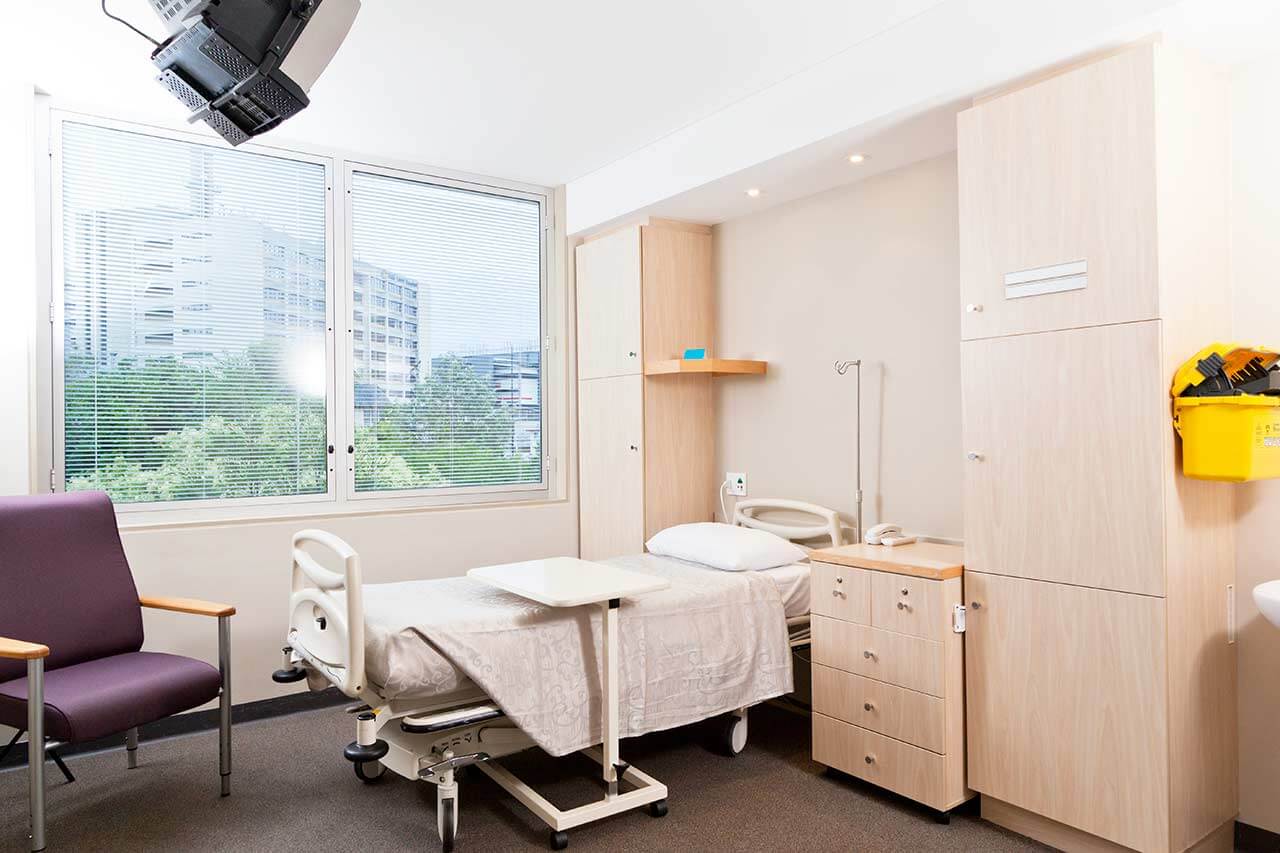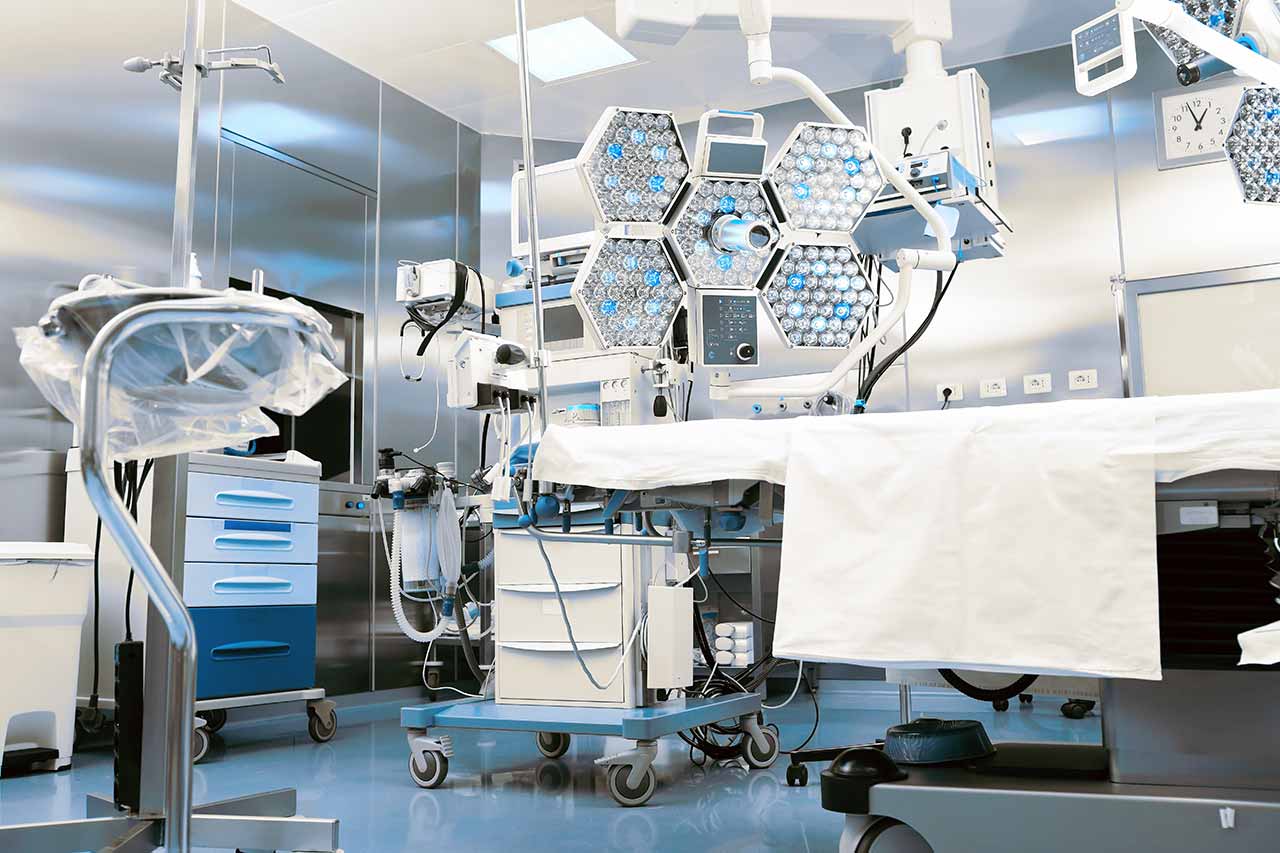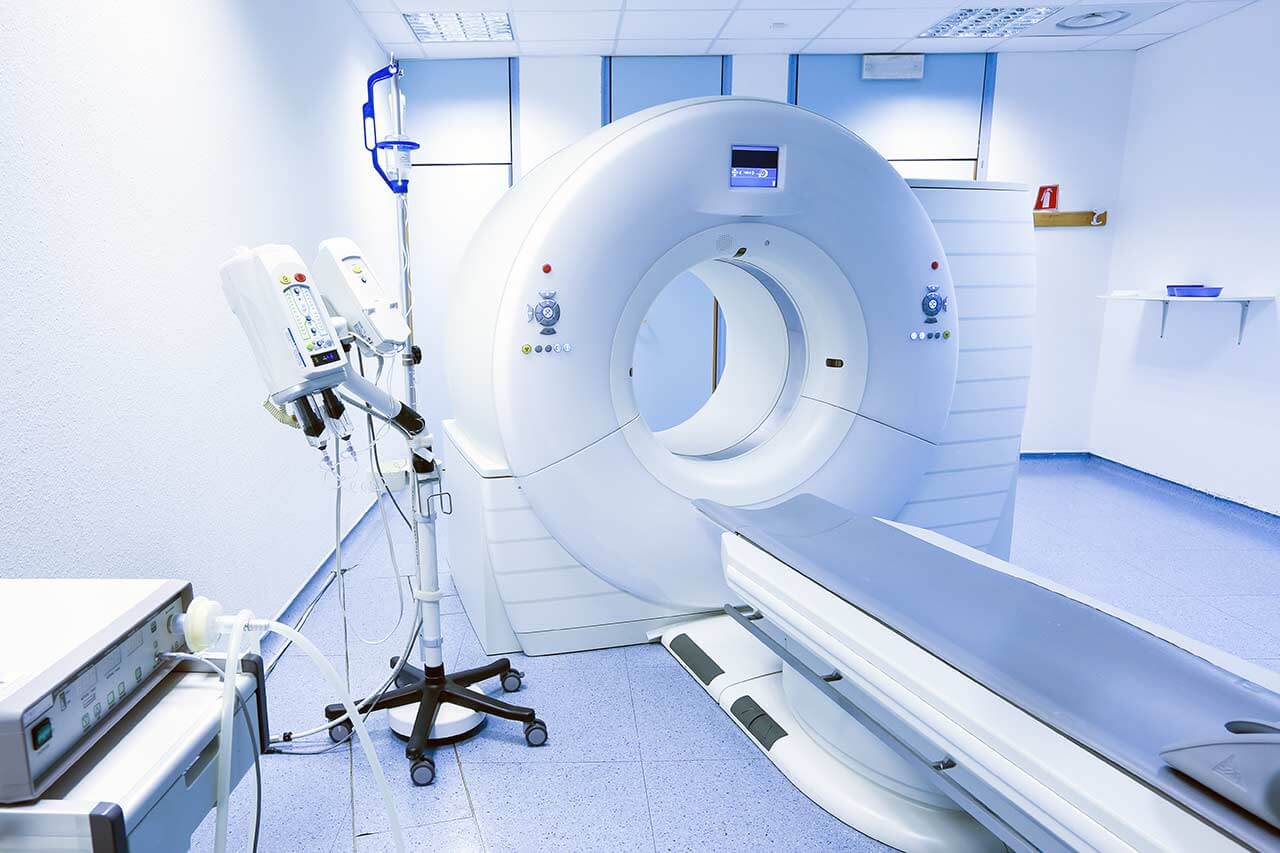
The program includes:
- Initial presentation in the clinic
- clinical history taking
- review of medical records
- physical examination
- laboratory tests:
- complete blood count
- general urine analysis
- biochemical analysis of blood
- inflammation indicators (CRP, ESR)
- indicators blood coagulation
- gynecological examination
- ultrasound examination: pelvis, abdomen
- preoperative care
- anterior vaginal plastic
- symptomatic treatment
- control examinations
- the cost of essential medicines and materials
- nursing services
- full hospital accommodation
- explanation of future recommendations
Required documents
- Medical records
- Pelvic ultrasoud (if available)
- Pelvic MRI/CT scan (if available)
Service
You may also book:
 BookingHealth Price from:
BookingHealth Price from:
About the department
The Department of Gynecology at the Beta Clinic Bonn provides all the possibilities of modern medicine for diagnosing and treating diseases of the female reproductive system. The department's doctors pay special attention to counseling patients and performing routine preventive examinations in order to assess the risks of developing a gynecological disease or detect it early. Special consultations are held here for patients with endometriosis and uterine fibroids. The key area of the department's specialization is minimally invasive interventions for benign diseases of the female reproductive system. The department also successfully performs intravaginal laser therapy for vulvar, vaginal, and pelvic floor pathologies. Another integral part of the work of the department's doctors is treatment for urinary incontinence using minimally invasive techniques and injection therapy with fillers and botulinum toxin. Each patient is provided with an individual approach to her clinical case. The department's gynecologists always devote enough time to the patient's comprehensive diagnostics and the study of the results obtained, which allow them to provide the most effective treatment. The department is headed by Dr. med. Daniel Gantert.
The department's primary specialization is minimally invasive interventions for diseases of the female reproductive system. The department regularly performs such interventions as hysteroscopy, hysterectomy, dilation and curettage, endometrial ablation, fallopian tube ligation or removal, and laparoscopic interventions to remove the ovaries, endometriosis foci, uterine fibroids, etc. Minimally invasive interventions are performed using miniature instruments. A surgical approach is provided by small incisions 5-10 mm long or through the vagina. It has been scientifically proven that the results of such low-traumatic interventions are comparable to the results of classical open surgeries. At the same time, minimally invasive operations are characterized by low blood loss, mild pain in the postoperative period, and rapid patient recovery. In addition, the department's gynecologists have already performed thousands of interventions, which attests to the rich experience and high professionalism of the doctors.
The team of the department's gynecologists offers patients the method of intravaginal laser therapy. This type of treatment is non-invasive and performed on an outpatient basis. As a rule, laser therapy is used to treat diseases of the vulva and vagina, as well as some pelvic floor pathologies. For example, the procedure is often prescribed for vaginal dryness, dysmenorrhea, atrophic vaginitis, genitourinary infections, and genital warts. In addition, the procedure is suitable for correcting the reduced tone of the vaginal tissues and eliminating cosmetic problems in the intimate area. Intravaginal laser therapy is performed with an Erbium YAG laser. The specialist begins the laser procedure by inserting a special applicator with a laser into the vaginal wall. After receiving energy from the laser, the vaginal tissues begin to actively regenerate. The procedure may last from several minutes to several hours, depending on its purposes. Patients often experience mild discomfort after the procedure, which persists for the first day. In most cases, women can leave the department and return to their daily activities immediately after the procedure.
The therapeutic options at the medical facility are complemented by the treatment of urinary incontinence in women. The pathology is quite common and causes discomfort because a woman constantly experiences involuntary urination. This may happen in a variety of situations, such as when a woman is coughing, laughing, lifting weights, or playing sports. The main causes of urinary incontinence include natural anatomical changes after childbirth, age-related changes, menopause, obesity, etc. In the early stages, drug therapy, pelvic floor muscle training using the biofeedback method, and pelvic floor muscle electrical stimulation are most often performed. In complex cases of urinary incontinence, the department's specialists successfully perform the following minimally invasive interventions: TVT sling procedures, filler injections, and intravesical Botox injections.
The department specializes in the diagnostics and treatment of the following gynecological diseases:
- Heavy menstrual bleeding
- Uterine bleeding
- Uterine fibroids
- Endometriosis
- Uterine polyps
- Ovarian cysts
- Urinary incontinence
- Recurrent miscarriages
- Intrauterine septa
- Fallopian tube obstruction
- Other gynecological diseases
The department's range of therapeutic services includes:
- Conservative treatment
- Drug therapy
- Intravaginal laser therapy
- Minimally invasive interventions
- Hysteroscopy
- Hysterectomy
- Dilation and curettage
- Endometrial ablation
- Laparoscopic removal of ovarian cysts
- Laparoscopic removal of endometriosis foci
- Adhesiolysis
- Uterine fibroid enucleation
- Adnexectomy
- Fallopian tube ligation or removal for sterilization
- TVT sling procedure
- Filler injections and intravesical Botox injections
- Other medical services
Curriculum vitae
Higher Education and Professional Career
- Medical studies and Doctoral Degree, Ruprecht Karl University of Heidelberg.
- Internship in the Department of Surgery at the University Hospital Geneva, Switzerland.
- Preparation for board certification, Evangelical Hospital Kalk Cologne.
- 2012 Board certification in Gynecology and Obstetrics.
- 2013 - 2017 Senior Physician, Hospital Porz am Rhein Cologne.
- 2017 - 2022 Senior Physician and Head of the Section for Minimally Invasive Surgery in the Department of Gynecology and Obstetrics at the University Hospital Duesseldorf.
- 2022 Head Physician of the Department of Gynecology at the Beta Clinic Bonn.
Research and Educational Career
- Holding basic and advanced courses "Operative hysteroscopy and laparoscopy" according to the recommendations of the Working Group on Gynecological Endoscopy (AGE).
- Holding basic and advanced courses of the Working Group on Urogynecology and Plastic Pelvic Floor Reconstruction (AGUB).
- Co-author of the AWMF-S3 guideline "Avoidance of perioperative hypothermia" as an authorized representative of the German Society for Gynecology and Obstetrics (DGGG).
- Member of the Project Group 2020/2021 of the AWMF-S3 guideline "Diagnosis, treatment, and follow-up monitoring of women with cervical cancer".
- Publication of specialized articles and book chapters.
Certificates
- 2017 MIC II Certificate from the Working Group on Gynecological Endoscopy (successful repeated certification in 2021).
- "Special Qualification in Endometriosis" Certificate, Endometriosis Research Foundation.
Memberships in Professional Societies
- German Society for Gynecology and Obstetrics (DGGG).
- Working Group on Gynecological Endoscopy (AGE) of the German Society for Gynecology and Obstetrics (DGGG).
- European Society for Gynaecological Endoscopy (ESGE).
- Working Group on Urogynecology and Plastic Pelvic Floor Reconstruction (AGUB) of the German Society for Gynecology and Obstetrics (DGGG).
- Lower Rhine-Westphalian Society of Gynecology and Obstetrics (NWGGG).
- German Cancer Society (DKG).
Photo of the doctor: (c) Beta Klinik Service-, Verwaltungs- und Forschungs- GmbH
About hospital
The Beta Clinic Bonn is a modern private healthcare facility with 20 specialized departments. In addition, the clinic cooperates with 30 independent doctors of various specializations, most of whom have their own private practices. The doors of the clinic first opened for patients in 2008. Since that time, the medical facility has expanded significantly and achieved outstanding success. It harmoniously combines state-of-the-art equipment, high levels of competence among doctors, and comfortable infrastructure. All these possibilities make it possible to provide patients with high-quality medical care in accordance with modern European standards. The work of the medical team at the clinic is based on the following principle: "Our task is to take care of the health of patients." The clinic provides comprehensive treatment, taking into account the individual needs and wishes of each patient.
The hospital has an excellent diagnostic base: rooms for instrumental diagnostics, imaging tests, and endoscopic procedures. The medical complex also has in-house laboratories with advanced equipment. The clinic's doctors have the opportunity to perform comprehensive diagnostics in the shortest possible time and detect the slightest pathological changes in the work and structure of the internal organs. When considering the diagnostic results in complex clinical cases, physicians from related specialties are often involved in the process so that all important aspects are taken into account when developing a treatment regimen for a patient.
The therapeutic options at the clinic are quite diverse. At the same time, doctors always strive to keep pace with innovations, carrying out treatment using the most modern and sparing techniques. The operating rooms at the clinic have advanced computer equipment, navigation devices, monitoring systems, surgical microscopes, special tools, and equipment for laparoscopic and endoscopic interventions, as well as laser systems. The clinic also has an in-house Rehabilitation Center, where patients undergo physiotherapy and therapeutic exercises.
The clinic is expanding more and more every year. Innovative developments in diagnostics and treatment are immediately introduced here. It is worth noting that the clinic is a pioneer in Germany in advanced laser treatment for epilepsy. The therapy was implemented into clinical practice in 2019 and has been successfully applied here since then.
Photo: (с) depositphotos
Accommodation in hospital
Patients rooms
The patients of the Beta Clinic Bonn live in comfortable single rooms. Each room has a separate bathroom with a shower and toilet. The rooms have a modern design and meet the standards of a high-class hotel. For the convenience of patients, the rooms are equipped with electrically adjustable beds, air conditioning, satellite and Internet TV, a telephone, and Wi-Fi.
The clinic also offers accommodations in enhanced comfort rooms. Such patient rooms have a more refined design. In addition, they are very spacious. Enhanced comfort rooms have a minibar, daily fresh fruit, and a special dinner menu. Most windows of the clinic's patient rooms offer a beautiful view of the Rhine River and beautiful green landscapes.
Meals and Menus
The patients of the clinic are offered balanced, delicious food: a buffet breakfast, a hearty three-course lunch, and a light dinner. Also, for dinner, one can taste special offers from the chef at the hospital restaurant, which, if desired, can be served to the patient room.
Further details
Standard rooms include:
Accompanying person
Your accompanying person may stay with you in your patient room or at the hotel of your choice during the inpatient program.
Hotel
You may stay at the hotel of your choice during the outpatient program. Our managers will support you for selecting the best option.
In the immediate vicinity of the clinic is the Kameha Grand, a five-star hotel. The exterior and interior of the hotel impress with their beauty. In addition, the hotel is famous for its excellent service. The hotel is located on the banks of the Rhine and offers picturesque views from its windows.





